- Home
- Robert J. Crane
We Aimless Few Page 2
We Aimless Few Read online
Page 2
I resisted the urge to point out how stupidly out of place he looked, peering about for non-existent traffic. But then, that stupid long jacket, all black, in the middle of summer … he was out of place anyway, save the back of Ace Comics, or mingling with a gang of similarly dressed losers in Castle Park.
(I realize this sounds harsh, but … eh. It’s Borrick.)
I ignored him, following my mum.
“Mira,” he called.
I didn’t turn.
Mum did, though. She didn’t stop, fortunately, but she took a long, hard look at Alain with a squinted eye as she continued forward, navigating on memory or perhaps some kind of mum-sonar.
“Isn’t that the Borrick boy?” she asked.
“Probably.”
“Mira,” he called again.
“Isn’t he calling your name?”
The tension in my neck cranked up another notch. “Probably.” It came out through gritted teeth.
Now Mum did stop. “Mira!” she admonished. “Do not be rude.”
I moved to go past—even regular rudeness was something that was too nice for Borrick—but she whipped out a hand and caught my wrist between vice-like fingers. Somehow, she’d slid the shopping bag there up past her wrist in that grabbing motion, to free all her fingers and thumb for the task of keeping me put.
“Get off,” I whispered.
“You talk to him,” Mum countered.
Borrick caught up. He’d been half-running—he was down the road, nearer to Argos than us, when he started—but for the final few feet he reduced his pace to something much more sedate and casual.
“Good morning, Mrs. Brand,” he said to Mum, bowing low.
“Hello, Mr. Borrick,” Mum answered. She still had a hold of me, so it was her free hand that she extended to Borrick to shake—again, somehow slipping the shopping bag up past her wrist, so she could shake with all the gentility of a baroness. Her acidic whisper to me just a moment ago was replaced with an overly friendly lilt, rising up cheerfully.
It made me feel ill.
“I trust you’re well today?” Borrick asked. He fixed his eyes firmly on Mum’s. She was shorter than him—shorter than me, by a couple of inches—and so he was looking down at her; and yet he appeared like a peon looking upon a monarch, enraptured.
Before today, I’d never have thought I could detest a member of the Borrick clan any more.
There, outside Holland & Barrett, I found myself to be completely and utterly mistaken. This display was gut-twistingly grotesque—from the both of them.
“Very well, thank you, Mr. Borrick,” Mum said. “And you?”
“Wonderful,” he said. Then his expression softened. “I am—truly sorry—about what happened to Emmanuel.” Shaking his head sadly, he clasped Mum’s hand. “If there is anything I can do, anything at all, then please, just say so.”
Anything he could do? Like what?
I had a suggestion—turn back time and thrust himself into the void in my brother’s place. That would be a fantastic solution to both of these little problems—that my brother was … gone; and that Borrick continued to show his face in my life, like some sort of recurring cyst.
Mum’s eyes were misty again. She released me to wipe at them. All the spice jars clacked together as the canvas bag from Sainsbury’s, now hanging in the crook of her arm, juddered about.
“Thank you,” she said dramatically. “You’re too kind. We are, of course … devastated. He was a wonderful boy.”
“He was,” said Borrick.
The nausea in my stomach grew. Much more of this, and I’d be painting Holland & Barrett’s plate glass windows with a stream of bright orange vom.
“I know it is only a small comfort, but he will be remembered,” Alain went on, “as one of the greats.”
“He will,” said Mum teary-eyed. “He truly will.”
She sniffled, and finally set down her bags of shopping to root around in her flowery handbag for a handkerchief. This, she blew her nose rather daintily into. Then, finally, she said, “Well then. I’ll let the two of you chat, shall I?” Before I could protest with a loud, No, she said to me, “I will meet you by M&S.” And off she went, with a short goodbye to Borrick.
I had half a mind to trot off after her. The other half said to stay here, that Borrick was, somehow, the better of two evils.
If I’d been thinking straight, I’d have hightailed it somewhere by myself, gotten away from the both of them. That would’ve been the thing to do. But when you’re witness to such a simpering display, it’s hard to think about anything other than keeping your breakfast from surging up your gullet.
Borrick stared at me awkwardly.
I did my best not to look at him.
“How are you doing?” he asked after a long moment. His hands were stuffed into his jacket now—none of those little handshakes for me. Probably knew I’d just as soon break his fingers than exchange a shake.
Now I looked at him. It was a flat look, one that would’ve made Heidi proud, if she were here—if she hadn’t, you know, sold me out to a grandmother whose sole intent was spying on me.
Borrick nodded. “As well as can be expected then, I suppose.”
I just continued to look at him, indifferent. Didn’t want to be in his company, or listen … but he’d come out here, I can only assume with the intention of talking to me about something—and if it kept me from my mum for another thirty seconds, then I might as well listen to it.
Not like I was doing a whole lot of anything right now, was it?
“Right then,” he said. “I’ll just … do the talking then, shall I?” He retrieved his hands from his jacket pockets, and cracked his fingers, not by lacing them together but by using the thumb of each hand to press down on the base of his forefinger and middle finger. He looked around uneasily, taking in this little slice of Colchester as though it was another world to him. Which, I supposed, it kind of was.
Where did he come from, anyway?
Finally, eyes settling on me again, Borrick said, “I’m sorry—about your brother. I mean that, by the way; I’m not just … being polite.”
“It’s fine,” I said shortly. Unlike Mum, I did not want to talk about it.
Borrick saw it, for he nodded again in acquiescence to my unspoken request that he shut up.
“That’s not all I wanted to talk to you about,” he said. Quietly, stepping inward, he muttered, “I have something. A quest.”
I stepped back. I didn’t want to be too close to him—and not only because I realized, in the back of my head, that him in his long black jacket and me in my oversized hoodie and jeans, we probably looked like some kind of estranged goth nerd power couple. All I needed was a streak of pink in my hair and a choker, and Borrick a heavy metal band tee, and we’d be there.
Definitely, definitely close to chucking my guts up now.
“What?” Borrick asked as I backpedaled.
“I’m not in that business anymore,” I said.
I turned away, to leave—
Borrick jogged around me. He thrust his arms out, to stop me from passing, the way I’d been taught in secondary school PE to block in basketball, looking like a gawky teenaged scarecrow.
I just stood, looking down the end of my nose at him.
He hesitated and lowered his arms. “Sorry.”
I raised an eyebrow, then moved to stepped past.
“Wait,” he called. Not blocking me now. People were looking, though, which was what probably cinched it for him.
“No.”
“Will you please just listen?”
“No.”
Borrick huffed. He beat quick feet to keep pace, although he was taller than me, his stride a little longer—probably the stupid cloak was weighing him down.
But, much as I’d like to think of Alain as stupid, he was not. I could not shut him up with a simple ‘no’, and I could walk away, but he was free to follow. And so, after a moment …
“It’s called
the Instrumentum Aeternitatis—the Instrument of Undying,” he said quickly. “I’ve got the first clue, but—I don’t know that I can do this alone.”
The Instrument of Undying—a familiar name, if a somewhat mistranslated one. It was the next natural quest in the line that began with the Chalice Gloria and the Plate of Immortality—and as soon as I heard the name roll off Borrick’s tongue, I had a distinct recollection of Carson complaining that its Latin name didn’t quite mesh with the translation.
A tingle ran along my spine. I hesitated—
But it died, and the pause in my step was only a tiny, momentary thing. What did it matter? A couple of months ago, yes, I would have filled with fire and excitement.
But now … what was the point?
I’d seen the Antecessors up close; I knew what this whole Seeking business was really about. None of the quests meant anything, none of the objects in them had any ultimate meaning. They were just trinkets put there for us, like a smear of peanut butter at the end of a rat maze.
“I don’t care,” I said.
“But it’s the—”
“It’s meaningless,” I said, rounding on Borrick. “Absolutely pointless. And I want nothing to do with it anymore.”
His eyebrows twitched. “Mira—”
“I’m done,” I said, with finality.
And I sidestepped him and was past.
This time, he did not follow me.
4
Mum was in M&S rather than outside, having a very thorough look at the flowers. She asked what Alain wanted, and I fobbed her off—just to offer his condolences—to which she once again got teary and a little dramatic, before drawing herself together. Then she bought the biggest bouquet she could, a £50 affair filled with fat-headed roses and a decorative spray of small pink buds. Seemed a bit extravagant for the dining room table, especially considering within a week they’d be dead, and even more so after having cheaped out on tinned tomatoes … but she kept talking about how ‘Manny would’ve liked these ones, yes, and they’d bring some lovely color to the dining room, color they all needed a bit more of right now,’ and so I didn’t argue.
I carried them home, listening to her domineering again. She was running through jobs, dredging up some of the kids Manny and I had gone to school with. I recognized a handful of their names, but most were alien to me now, and I didn’t especially care to know that Sarah P. was working as a receptionist, or that the Armstrong boy in Manny’s year had his own business selling and installing hot tubs. If she was hinting that I go to work for him, she was going to be sorely disappointed.
I helped put things away, in a kitchen that had always been big, but now felt like it was at least two sizes larger than necessary. It was a cavernous place, all decked out in thick wood, stained deep brown, the doors intricately patterned with renderings of Seeker stories—not the sort of thing you’d find in your B&Q kitchen department, I can tell you. Well, not unless they’ve started doing integrated fridge-freezer units with etchings of the Monument to the Wayfarers.
All that done, Mum set to preparing dinner. Hours too early—but it kept her busy.
“Help me, will you?” she asked—or rather told me. I didn’t have a whole lot of choice in the matter, honestly. So I did, measuring out spices into a big, black-bottomed pot that could probably do as a witch’s cauldron, the size of the thing. Then I opened the tins of tomatoes, still silent, as Mum droned on about university now and how I’d only need to take the bus, because Essex Uni was only on the other side of Colchester …
“Or your father could drive you,” she said from over the growing mountain of carrot slices she steadily built. “Yes, that would be much safer, much safer indeed.”
I just listened and gave an occasional “Yes, Mother,” when she seemed to be waiting for some form of feedback from me. I sounded very, very dead, even to my own ears—but once again, agreeing with her assessments won out, and she continued her drone.
Eventually the full sum of my assistance was finished. The stew was bubbling away, as it would be for the next four or five hours, reducing until the watery liquid in the pot was thick, almost like glue. It smelled good, honestly, all those warm spices, and the brown beef and onions in the air … but it was too hot today for meals like this, and I wasn’t enthused about damn near anything right now regardless.
The washing up needed doing. But my help wasn’t welcome there; I dawdled too much, apparently, when I was on drying duty. And washing? Forget it. Apparently I left specks. As far as I could tell they must be microscopic ones. But Mum could see them, squinting away at my handiwork, and she banished me from getting involved.
Suited me.
So off I went, up the stairs, which were a curving flight to a balcony that overlooked the entryway. Then along the hall and up again, to the top floor, where my bedroom was, and Millie’s...and Manny’s, once …
I paused before I got to these stairs though.
My father’s office was on the middle floor. I’d loved this room, when I was a child—so much knowledge, the promise of so much adventure. It was like a library in miniature, really, overloaded with books so that it felt crowded, but which would have hardly contributed to a fraction of an aisle in my old hideout. Dad kept candles in there, and he read sometimes by this light. Enough of them had burned over the years that the smell of a smoking wick seemed to have been impressed into the room’s atmosphere permanently.
The door to the office was open.
My father, Jacob Brand, sat upon a grand red armchair. He had in his hand a carved totem, no longer than a cigarette, and no wider than a roll of two-pence pieces all stacked together. Two small wings protruded from the top of the stone object, very square. The totem was dark, but the lines that gave the rendered creature upon it detail were very light, like chalk on a blackboard.
Dad stared at it, his mouth drooped, eyes unseeing.
I watched him.
I’d looked up to my father, once. He was everything I wanted to be—a Seeker, an adventurer, whose achievements knew no bounds. Like the totem he held now—a gift, for unifying the pygmy peoples of Sant’anung after decades at war, and introducing them to the Crossroads, where they were now learning the secrets of Seeking and just now forging their first talismans.
Then, when I spoke my desires, they were snatched away from me with words, roadblocks flung up in my way. Mum was much more blatant about it, but Dad hadn’t supported me either—it was Manny who would go on to follow in his footsteps; Camille and I were just … I don’t know what we were. Something to occupy Mum, I thought at times, because they’d known that eventually Manny would be off to explore worlds beyond this one, sometimes for days or weeks or even months at a time. She would need a focus then, something to dote upon.
Well, she had that now. She had it forever, now that my Seeking days were done.
Looking at him now was faintly peculiar. I saw, for the first time, just how old he’d gotten—nearly fifty, with lines on his forehead, more over one eyebrow than the other where one just naturally raised higher when he lifted them. His hair had been the same deep brown as the woodwork in the kitchen, but now it was streaked through with so much grey that it wasn’t even the dominant color anymore.
His body was strong—had to be, if you were Seeking—but it sagged as he sat there, in that chair, looking sadly at his totem from Sant’anung.
He looked like a man who had no fight left in him.
He roused then and glanced to me with watery blue eyes.
“What is it, Mira?” he asked. His voice was tired, like he’d been talking for a long, long time without pause. “Is tea ready?”
Is tea ready? Is tea ready? Was this what I was reduced to now? Six weeks ago, I’d been a world famous Seeker in my own right. I’d clocked up victories that no one else had. I’d cracked the mystery of the Chalice Gloria, after it had lain hidden for centuries. I’d found, with Heidi and Carson, the Tide of Ages—and used the damned thing, too. At Carson’s direct
ion, we’d located the missing treasure of Ostiagard. And just thirty-seven days ago, thirty-seven days that separated me from a life I’d never live again, and this one, I had been the victor in another stupid, pointless Antecessor quest.
And now my job was telling my dad when his bloody tea was ready?
Was this my purpose now? After all that, all those successes, was I now just the fleshy equivalent of Lady Angelica’s robot butlers?
But my anger diminished quickly. What did it matter anyway? All those achievements were nothing. So I found a bloody cup that lay hidden in a chamber someplace out of the way. Who cared? The people who were impressed by it didn’t know the truth—that we were all just rats in a maze, watched by beings greater than ourselves, tested simply because it was amusing.
“No, Dad,” I said. “It’ll be a few hours.”
“Oh.” He consulted his watch. Then he said, “Is that the time?” He rubbed one hand down his face, from his forehead past his nose, and finally down his chin. The skin seemed to drag with it, like it hung too loose. “Only twelve. My, my.”
He was quiet for a few long seconds—and I began to feel more like an intruder than ever, standing there, watching this broken man.
I was just about to move when he said, “Have you had a good morning?” He looked up at me, and there was a hopeful sort of look in his eyes, as if me having a good morning—that simple thing—was all that he hung his hopes on.
I hadn’t. But I nodded nevertheless.
“Good,” he said, looking relieved, and easing back into his chair. He’d filled it, once; but now it appeared only to swallow him. “Good.”
The Sant’anung totem lay in his palm. He considered it, a weary expression in his eyes.

 The Girl in the Box Series, Books 1-3: Alone, Untouched and Soulless
The Girl in the Box Series, Books 1-3: Alone, Untouched and Soulless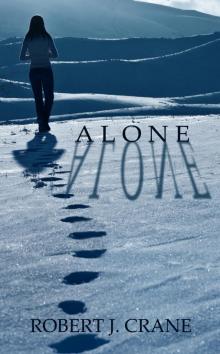 Alone: The Girl in the Box, Book 1
Alone: The Girl in the Box, Book 1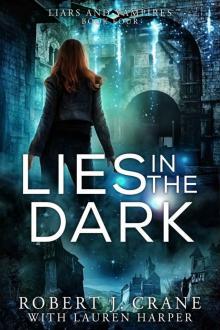 Lies in the Dark
Lies in the Dark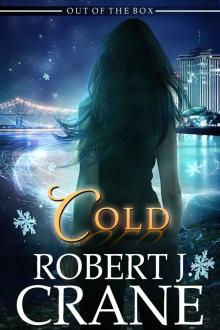 Cold
Cold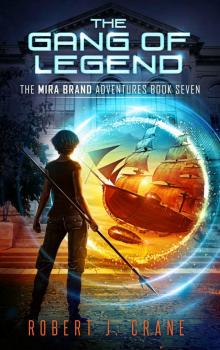 The Gang of Legend
The Gang of Legend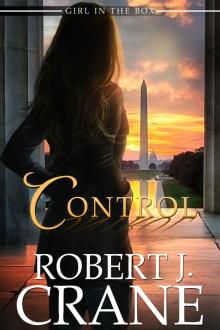 Control: Out of the Box (The Girl in the Box Book 38)
Control: Out of the Box (The Girl in the Box Book 38)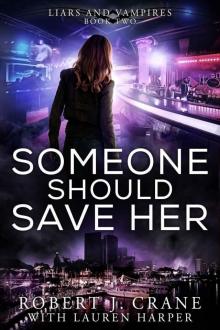 Someone Should Save Her
Someone Should Save Her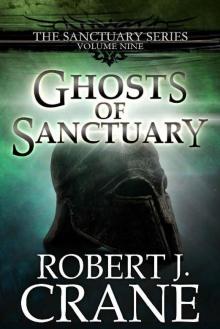 Ghosts of Sanctuary
Ghosts of Sanctuary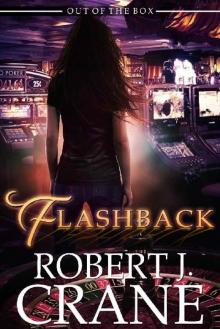 Flashback (Out of the Box Book 23)
Flashback (Out of the Box Book 23)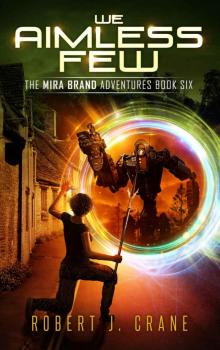 We Aimless Few
We Aimless Few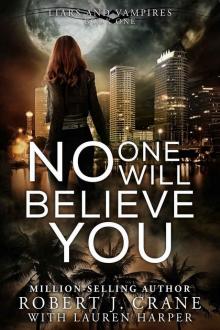 No One Will Believe You
No One Will Believe You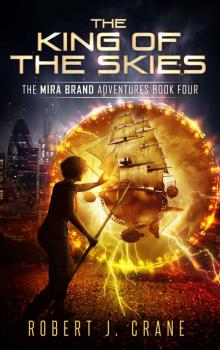 The King of the Skies
The King of the Skies Apex
Apex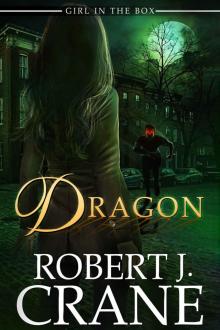 Dragon: Out of the Box (The Girl in the Box Book 37)
Dragon: Out of the Box (The Girl in the Box Book 37)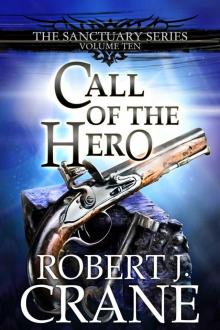 Call of the Hero
Call of the Hero Blood Ties
Blood Ties A Home in the Hills
A Home in the Hills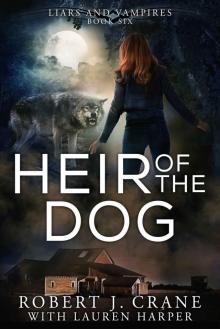 Heir of the Dog (Liars and Vampires Book 6)
Heir of the Dog (Liars and Vampires Book 6)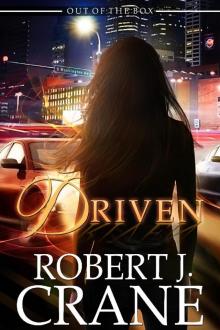 Driven
Driven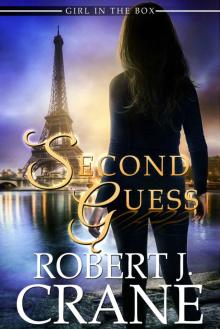 Second Guess (The Girl in the Box Book 39)
Second Guess (The Girl in the Box Book 39)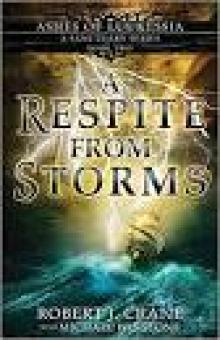 A Respite From Storms
A Respite From Storms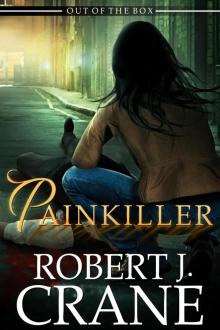 Painkiller
Painkiller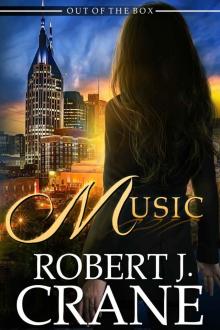 Music: Out of the Box 26 (The Girl in the Box Book 36)
Music: Out of the Box 26 (The Girl in the Box Book 36)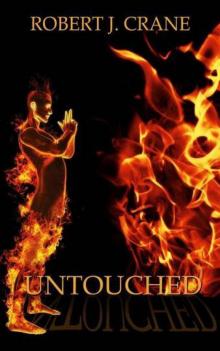 Untouched tgitb-2
Untouched tgitb-2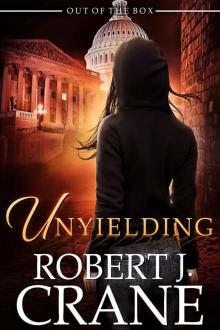 Unyielding (Out of the Box Book 11)
Unyielding (Out of the Box Book 11)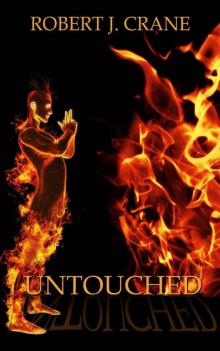 The Girl in the Box 02 - Untouched
The Girl in the Box 02 - Untouched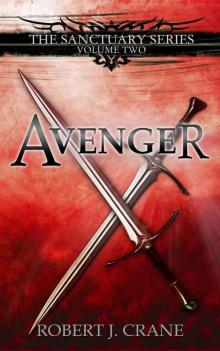 The Sanctuary Series: Volume 02 - Avenger
The Sanctuary Series: Volume 02 - Avenger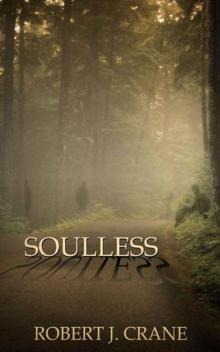 Soulless tgitb-3
Soulless tgitb-3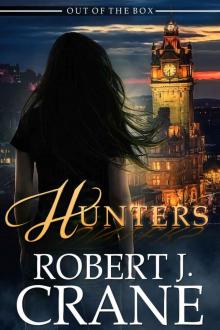 Hunters (Out of the Box Book 15)
Hunters (Out of the Box Book 15)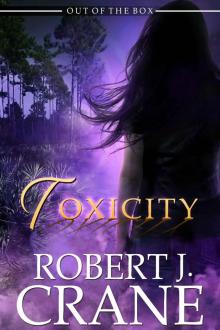 Toxicity (Out of the Box Book 13)
Toxicity (Out of the Box Book 13)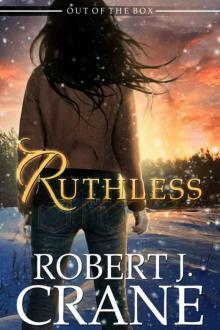 Ruthless (Out of the Box Book 3)
Ruthless (Out of the Box Book 3)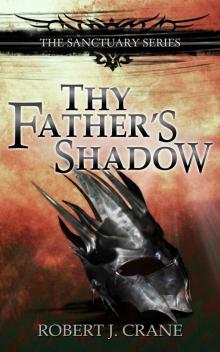 Thy Father's Shadow (Book 4.5)
Thy Father's Shadow (Book 4.5)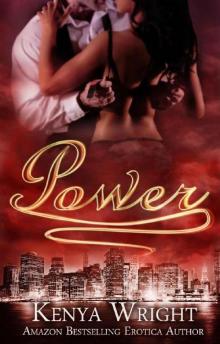 Power
Power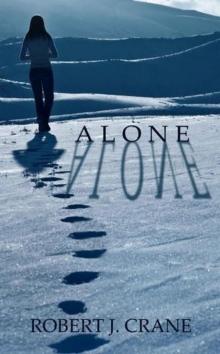 Alone tgitb-1
Alone tgitb-1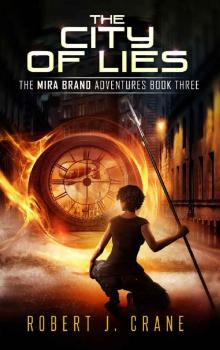 The City of Lies (The Mira Brand Adventures Book 3)
The City of Lies (The Mira Brand Adventures Book 3)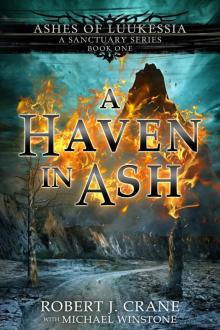 A Haven in Ash
A Haven in Ash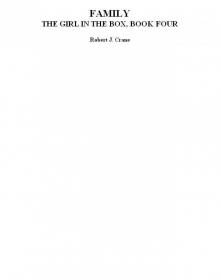 Family
Family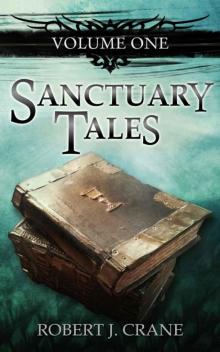 Sanctuary Tales (Book 1)
Sanctuary Tales (Book 1) Hero
Hero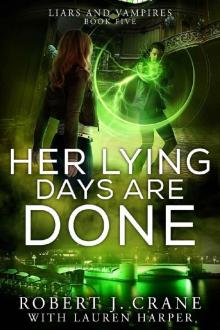 Her Lying Days Are Done
Her Lying Days Are Done![Crane, R [ Southern Watch 03] Corrupted Read online](http://i1.bookreadfree.com/i1/04/02/crane_r__southern_watch_03_corrupted_preview.jpg) Crane, R [ Southern Watch 03] Corrupted
Crane, R [ Southern Watch 03] Corrupted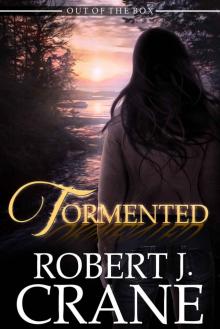 Tormented
Tormented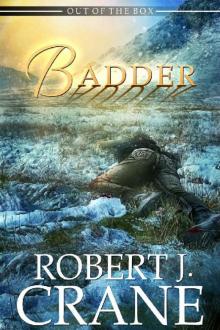 Badder (Out of the Box Book 16)
Badder (Out of the Box Book 16)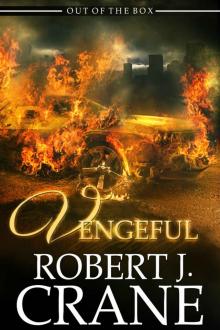 06 - Vengeful
06 - Vengeful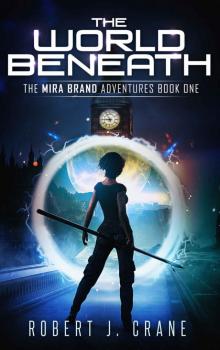 The World Beneath (The Mira Brand Adventures Book 1)
The World Beneath (The Mira Brand Adventures Book 1)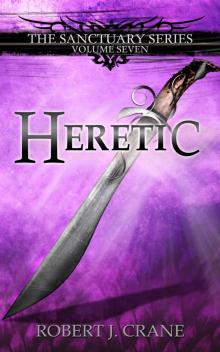 Heretic (The Sanctuary Series Book 7)
Heretic (The Sanctuary Series Book 7)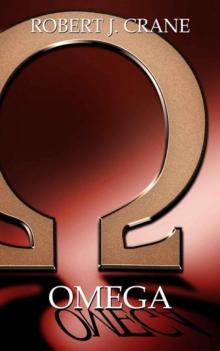 Omega tgitb-5
Omega tgitb-5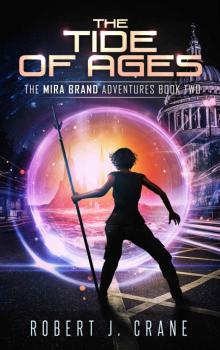 The Tide of Ages (The Mira Brand Adventures Book 2)
The Tide of Ages (The Mira Brand Adventures Book 2)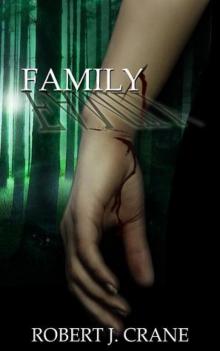 Family tgitb-4
Family tgitb-4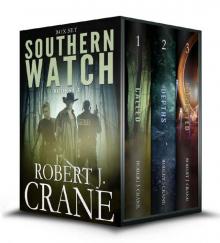 The Southern Watch Series, Books 1-3: Called, Depths and Corrupted
The Southern Watch Series, Books 1-3: Called, Depths and Corrupted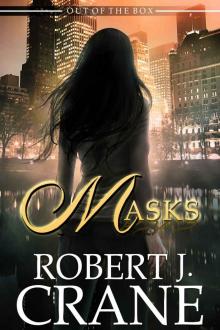 Masks (Out of the Box Book 9)
Masks (Out of the Box Book 9)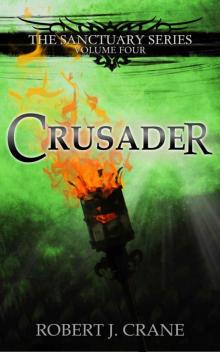 Crusader: The Sanctuary Series, Volume Four
Crusader: The Sanctuary Series, Volume Four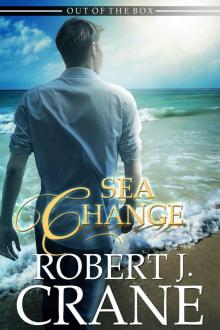 Out of the Box 7 - Sea Change
Out of the Box 7 - Sea Change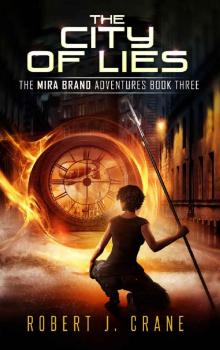 The City of Lies
The City of Lies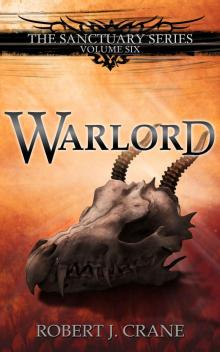 Warlord
Warlord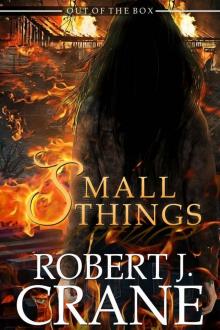 Small Things (Out of the Box Book 14)
Small Things (Out of the Box Book 14)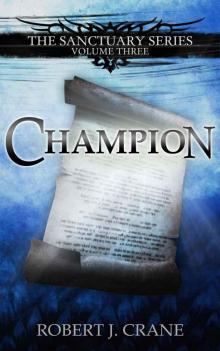 The Sanctuary Series: Volume 03 - Champion
The Sanctuary Series: Volume 03 - Champion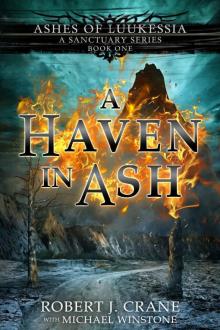 A Haven in Ash (A Sanctuary Series) (Ashes of Luukessia Book 1)
A Haven in Ash (A Sanctuary Series) (Ashes of Luukessia Book 1)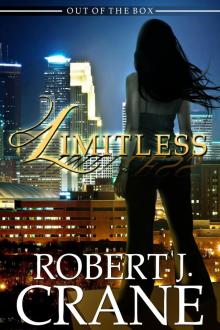 Limitless
Limitless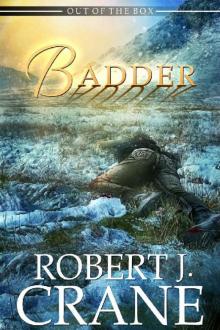 Badder
Badder Legend
Legend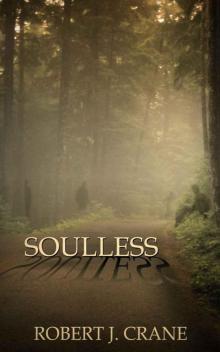 The Girl in the Box 03 - Soulless
The Girl in the Box 03 - Soulless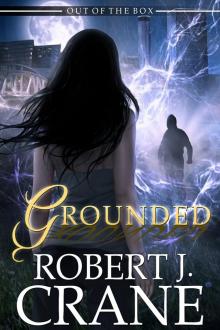 Grounded (Out of the Box Book 4)
Grounded (Out of the Box Book 4) In the Wind (Out of the Box Book 2)
In the Wind (Out of the Box Book 2)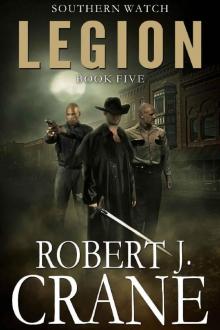 Legion (Southern Watch Book 5)
Legion (Southern Watch Book 5)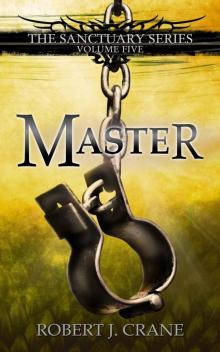 Master (Book 5)
Master (Book 5)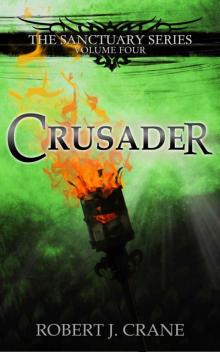 Crusader s-4
Crusader s-4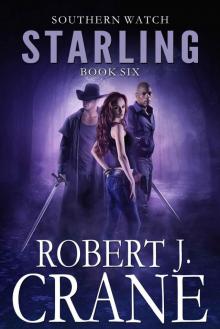 Starling (Southern Watch Book 6)
Starling (Southern Watch Book 6)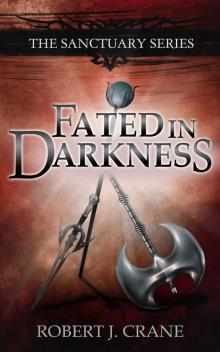 Sanctuary 5.5 - Fated in Darkness
Sanctuary 5.5 - Fated in Darkness